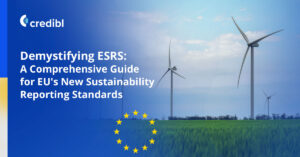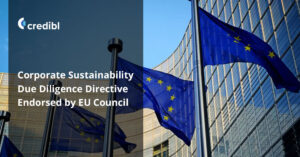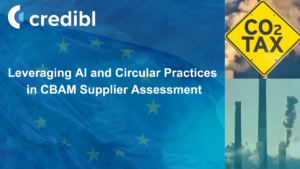The International Financial Reporting Standards Foundation (IFRS) has released two new sustainability and climate-related disclosure standards. These standards aim to enhance transparency and consistency in how companies report their environmental, social, and governance (ESG) performance. The standards, which are expected to take effect in 2024, are designed to provide investors with a more comprehensive and consistent view of the sustainability risks and opportunities facing companies.
This blog post will explore the key features of the IFRS sustainability and climate reporting standards and discuss their similarities and differences with existing reporting frameworks.
The first standard, IFRS S1, covers general requirements for sustainability-related financial information. It requires companies to disclose information about their governance, strategy, risk management, and metrics and targets for sustainability-related matters. The second standard, IFRS S2, focuses on climate-related disclosures. It requires companies to disclose their greenhouse gas emissions, risks and opportunities, and climate-related adaptation and mitigation strategies.
Key Features of the IFRS Sustainability and Climate Reporting Standards:
- Comprehensive Scope: The IFRS sustainability and climate reporting standards cover a wide range of topics, including greenhouse gas emissions, energy consumption, water usage, biodiversity, social impact, and governance practices. These standards encourage companies to provide a holistic view of their ESG performance, enabling stakeholders to assess the company’s sustainability efforts effectively.
- Materiality: The standards emphasize the concept of materiality, requiring companies to focus on reporting information that is relevant and significant to their business and stakeholders. This ensures that companies prioritize disclosure of ESG matters that have a substantial impact on their operations and are essential for decision-making.
- Consistency and Comparability: The IFRS standards promote a consistent reporting framework to facilitate comparability between companies. They provide guidelines for companies to disclose relevant metrics, targets, and methodologies, enabling stakeholders to evaluate and compare ESG performance across different organizations. This consistency enhances transparency and supports informed decision-making by investors, regulators, and other stakeholders.
Like other reporting frameworks, the IFRS standards align with global sustainability goals, such as the United Nations Sustainable Development Goals (SDGs) and the Paris Agreement on climate change. This alignment helps companies contribute to global sustainability targets and provides a common language for reporting progress. It also encourages companies to engage with their stakeholders, including investors, employees, customers, and communities, to understand their ESG concerns and integrate them into their reporting processes.
Differences from Existing Reporting Frameworks:
However, there are notable differences between IFRS sustainability and climate reporting standards and frameworks like the following,
- Financial Integration: A significant distinction lies in how the IFRS standards incorporate sustainability and climate-related information into financial statements. This incorporation guarantees that the company’s ESG performance is taken into account when assessing its overall financial performance, emphasizing the interdependence between sustainability and financial success.
- Reporting Framework Status: In contrast to existing reporting frameworks that are voluntary, the IFRS standards have the possibility to become mandatory. Companies might be obligated to adopt and comply with these standards, providing a consistent reporting approach across various industries and jurisdictions.
The release of the IFRS sustainability and climate reporting standards is a significant step forward in developing global sustainability reporting standards. These standards offer a comprehensive approach, focusing on materiality, consistency, and comparability. They share similarities with existing reporting frameworks but also bring unique features such as financial integration and the potential for mandatory adoption.
By adopting these standards, companies can enhance their transparency, meet stakeholder expectations, and contribute to a more sustainable and resilient global economy. Overall, these new standards are expected to play a significant role in helping investors to make informed decisions about where to allocate their capital.
To stay updated on the latest ESG trends and news, bookmark our Blog. For more information about our AI-powered ESG Data Management and Reporting Platform, visit more – www.crediblesg.com.







